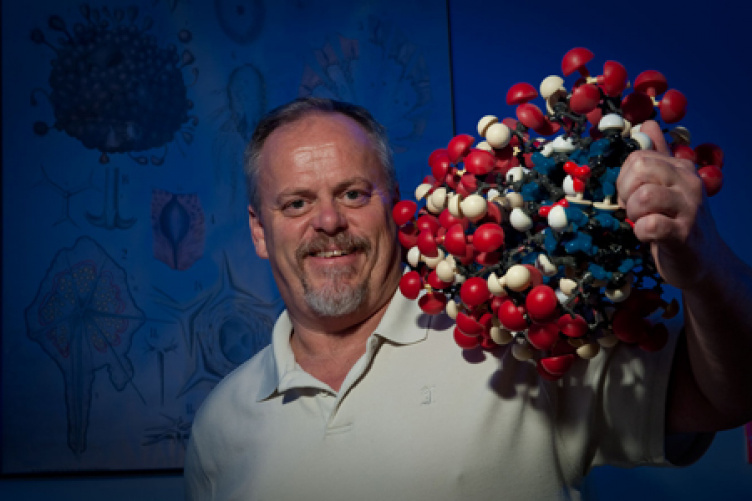
A five-year $18.1 million grant from the National Institutes of Health to a statewide partnership led by UNH and Dartmouth’s Geisel School of Medicine will expand biomedical research capacity and training in New Hampshire.
The grant is the second round of funding for the New Hampshire IDeA Network of Biomedical Research Excellence (NH-INBRE) — a collaboration of two- and four-year colleges in New Hampshire — to support its network of shared resources that serve undergraduate student and faculty biomedical research at colleges and universities across the state.
As INBRE “mentor institutions,” UNH and Dartmouth share their infrastructure and expertise in biomedical training with undergraduate students at the partner schools: Colby-Sawyer College, Franklin Pierce University, Keene State College, New England College, Plymouth State University, Saint Anselm College and the Community College System of New Hampshire.
“The renewal of this grant is recognition of the success of the NH-INBRE program in boosting the state’s capacity for biomedical research,” says Jan Nisbet, senior vice provost for research at UNH. “I’m proud of our contributions, largely through our Hubbard Center for Genome Studies, that engage undergraduate students at our state’s colleges and universities as they prepare for careers and research in the biotechnology, biomedical and pharmaceutical industries.
UNH’s Hubbard Center for Genome Studies (HCGS) serves as the program’s bioinformatics core, responsible for supporting the analysis of data generated by biomedical research projects at NH-INBRE’s partner schools.
“These schools are training a lot of undergraduates who are going to go on to both research and practical careers in medicine and medical research,” says W. Kelley Thomas, Hubbard Professor of genomics and director of the HCGS. “This is an opportunity to leverage the infrastructure and expertise at Dartmouth and UNH to support the excellent research taking place at our partner institutions across the state.”
As the bioinformatics core, UNH uses computers and computer programs to analyze the ever-growing datasets that are generated in biology. “It’s part of the big data revolution that’s starting to dominate healthcare and biomedical research,” says Thomas.
Faculty and staff from the HCGS train faculty and students at partner schools in harnessing that big data to inform their biomedical research, providing state-of-the-art computing for genomic analysis, onsite training modules in genomics and bioinformatics, deep DNA sequencing, gene expression and many other important biomedical research tools. “It’s a really effective way of doing this work and a very cost-effective way to bring state-of-the-art research infrastructure to these smaller, primarily undergraduate colleges and universities across the state.”
In addition, UNH’s Research Computing Center provides the high-performance computer that is a statewide platform for bioinformatics. “It’s a really effective way of doing this work and a very cost-effective way to bring state-of-the-art research infrastructure to these smaller, primarily undergraduate colleges and universities across the state,” says Thomas.
NH-INBRE’s initial NIH grant supported nearly 600 New Hampshire college students who participated in 25 research projects funded at partner schools. NH-INBRE also identifies and funds outstanding biomedical researchers among faculty members of partner institutions across New Hampshire so they can lead research programs that contribute to biomedical research, and in turn acquaint their students with top-level research, building important skills needed to succeed in New Hampshire’s growing biotechnology sector.
“New Hampshire is home to 50 companies in the biotechnology and pharmaceutical fields and they require a well-trained workforce,” says Ronald Taylor, NH-INBRE’s program director and principal investigator. “Several students who conducted NH-INBRE-supported research have obtained research technician positions at some of these companies.” Taylor is a professor of microbiology and immunology at Dartmouth’s Geisel School of Medicine.
Learn more about NH-INBRE’s programs around the state at NHINBRE.org.
-
Written By:
Beth Potier | UNH Marketing | beth.potier@unh.edu | 2-1566
















































